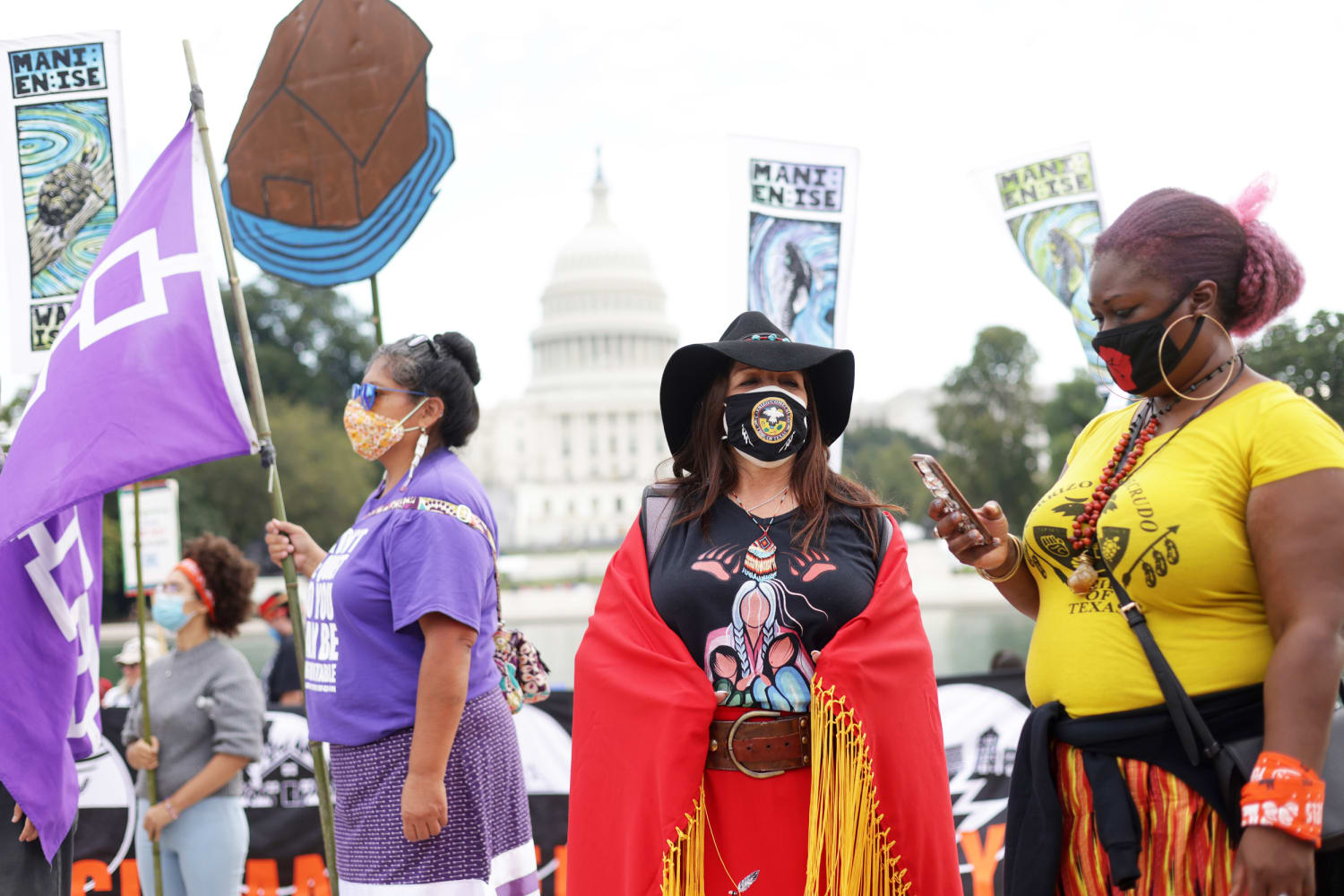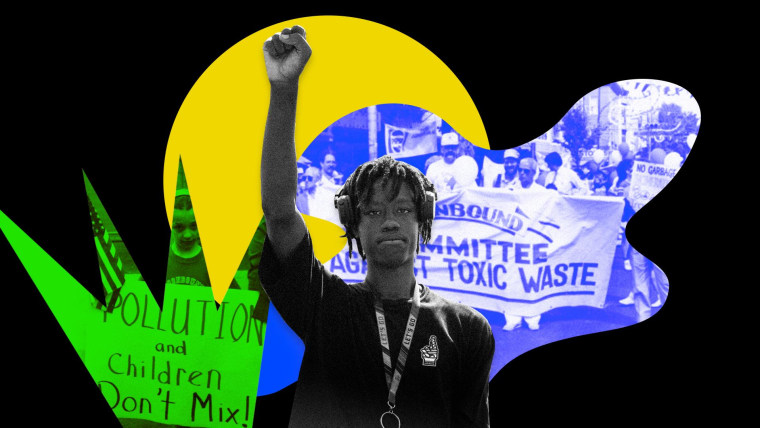The massive economic and climate package passed Friday by House Democrats includes $60 billion for so-called environmental justice priorities, and White House officials are pledging that economically disadvantaged communities grappling with pollution and health disparities will have a clear line to that money.
The Biden administration said there will be a “regular drum beat” push to promote several initiatives. Those include a block grant program, another to target pollution in port communities, as well as a “neighborhood access and equity grant” for improving transportation and air quality. Other environmental initiatives in the bill are investing in clean energy and sustainability projects that focus on disadvantaged communities, and providing dedicated funding for tribal nations, many of whom must combat the effects of climate change and extreme drought on their lands.
“I ran for office on a bold climate agenda that would deliver justice to communities facing legacy pollution and hurting the most from climate change. Today, the Inflation Reduction Act delivers on that vision to advance environmental justice and economic opportunity,” President Joe Biden said in a statement, adding, “Together, we are defeating the special interests who have blocked progress for decades — and finally bringing along the communities that have been left behind for too long.”
The legislation is being touted by Democrats for including the largest single investment to fight climate change as well as lower carbon emissions — at a cost of roughly $370 billion. Republicans have unanimously opposed the bill, which also seeks to reduce the deficit and tamp down inflation through corporate tax increases and prescription drug savings.
Ali Zaidi, the White House’s deputy national climate adviser, said the environmental justice aspect builds on Biden’s campaign to make the issue a core pillar of his administration, and his broader agenda to put the power and decision-making back into the hands of communities. The goal is to help neighborhoods clean up decades of legacy pollutants and be economically vibrant.
“This is like throwing the ball to a running back that’s just taking off,” Zaidi said. “This is going to keep momentum going forward.”
Environmental groups have largely thrown their support behind the Democrats’ legislation, which passed the Senate on Sunday. The bill also includes funding for rural communities and communities with fossil fuel-based economies to make the transition to clean energy.
“Of course, it’s not enough, but it’s great that there’s a start there,” said Christina DeConcini, the World Resource Institute’s director of government affairs.
In addition, Senate Democrats agreed to include in the bill new oil drilling leases in the Gulf of Mexico and off Alaska as part of hard-fought negotiations to placate members of the party. Fossil fuel companies, however, would face penalties for excess methane emissions from drilling oil and gas.
Abigail Dillen, the president of Earthjustice, a nonprofit environmental law group, called the fossil fuel concessions “egregious,” but added in a statement that “averting the worst of the climate crisis requires a whole-of-government approach, and this legislation is just the beginning.”
Maria Lopez-Nuñez, a member of the White House Environmental Justice Advisory Council and an environmental activist in Newark, New Jersey, which is home to four toxic “Superfund” sites, said the White House’s plans for the money are needed, but the administration must ensure that communities “don’t have to jump through a million hurdles for help while fossil fuel companies get a bigger slice of the pie.”
She added that there will be accountability of the spending through the White House’s own “Justice40” initiative, which Biden signed during his first week in office and sets a goal that 40% of benefits from federal investments go toward “disadvantaged communities that are marginalized, underserved, and overburdened by pollution.”
“Everything will be subject to Justice40,” Lopez-Nuñez said, adding, “We’re talking about unprecedented billions of dollars flowing into communities where they’re in need of a deep impact.”
Zaidi said the legislation is poised to expand local groups’ direct access to funding after Biden previously heard concerns from environmental justice leaders on the front lines of their communities.
“It’s one thing for the federal government to target or aim resources at low- and moderate-income communities,” Zaidi said. “It’s another thing to actually give them the resources and the wherewithal to push for the policy changes they want to see.”
Denise Chow contributed.
Source: | This article originally belongs to Nbcnews.com











